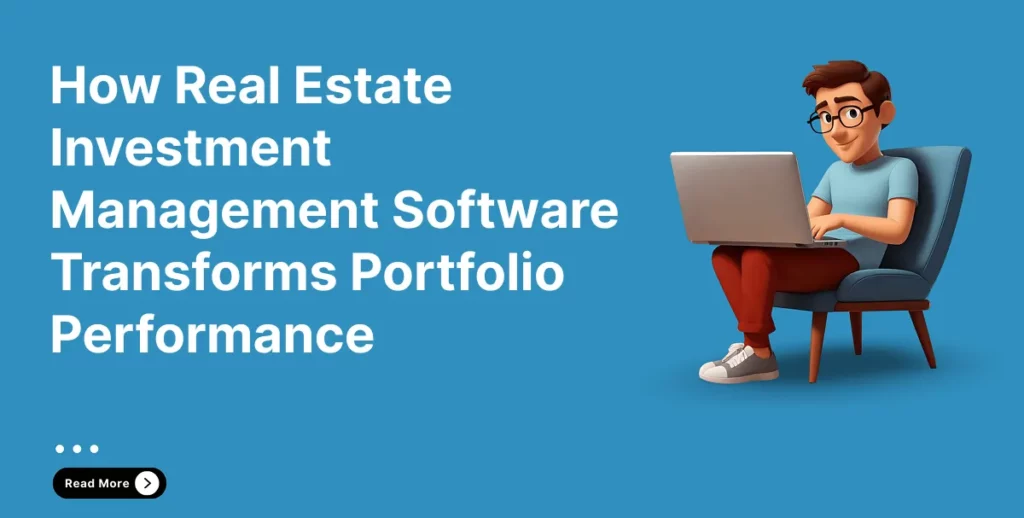

Managing real estate investments is no longer just about acquiring properties and collecting rent. Today’s market demands precise financial oversight, transparent reporting, and the agility to adapt strategies as conditions shift. For firms managing multiple projects or portfolios, manual tools and spreadsheets are no longer sufficient.
This is where real estate investment management platforms come in. By unifying data, automating reporting, and strengthening investor communication, these tools are reshaping how firms operate, and giving them a critical competitive edge.
Investment managers often deal with layers of complexity: different asset classes, financing structures, joint ventures, and evolving market conditions. Without the right systems, teams spend more time reconciling spreadsheets than analyzing opportunities.
Common pain points include:
These issues can erode investor trust, slow down capital raises, and limit growth potential.
Generic accounting or project management platforms don’t address the nuances of investment oversight. Real estate investment management software, however, is designed with the industry’s unique requirements in mind.
By consolidating financial, operational, and investor data into one platform, firms gain real-time visibility into portfolio performance. They can generate reports in minutes instead of weeks, model cash flows across different scenarios, and keep investors informed with professional-grade dashboards.
When choosing a solution, scalability is also crucial. A system that works for five properties should still function seamlessly when the portfolio grows to fifty.
The most effective investment management platforms share several defining capabilities:
Together, these features not only save time but also strengthen credibility with capital partners.
Trust is one of the most valuable currencies in real estate investment. Investors want timely updates, accurate reporting, and assurance that their capital is being managed responsibly. Specialized software directly supports this need.
By offering on-demand access to performance dashboards, firms eliminate the back-and-forth of manual reporting cycles. Automated alerts can notify investors of distributions or key milestones, reinforcing transparency. Over time, this consistency builds confidence, critical for attracting repeat investors and raising larger funds.
The advantages extend beyond operational streamlining. Firms that adopt real estate investment management software gain strategic flexibility. With accurate data and forecasting tools, leaders can make more informed decisions about acquisitions, dispositions, and capital allocation.
For example, scenario modeling may reveal that reallocating capital from underperforming assets to emerging markets could yield stronger long-term returns. Similarly, portfolio-wide analytics can uncover patterns, such as recurring cost overruns in specific property types, that guide smarter strategies moving forward.
These insights help transform firms from reactive managers into proactive strategists.
Adopting an investment management platform requires thoughtful planning to maximize ROI. Key best practices include:
Handled correctly, the transition pays dividends not just in efficiency, but also in long-term scalability.
As portfolios grow more complex and investors demand greater transparency, technology will continue to redefine the investment management landscape. Firms that adopt specialized platforms now will be better positioned to handle future demands, from regulatory changes to new asset classes.
Rather than relying on outdated spreadsheets or piecemeal systems, investment managers can partner with Elevate Solutions to implement integrated platforms that deliver clarity, efficiency, and real-time insight at every stage of the investment lifecycle.
Real estate investment management is as much about trust and foresight as it is about assets and returns. By implementing specialized platforms, firms gain the visibility and control they need to maximize performance while keeping investors informed.
For teams aiming to scale portfolios and strengthen relationships with capital partners, adopting advanced investment management tools isn’t just a smart move, it’s becoming an industry standard.






Schedule a consultation! Provide your contact information below and we’ll get back to you as soon as we can.
We use cookies to improve your experience on our site. By using our site, you consent to cookies.
Manage your cookie preferences below:
Essential cookies enable basic functions and are necessary for the proper function of the website.
Google reCAPTCHA helps protect websites from spam and abuse by verifying user interactions through challenges.
Google Tag Manager simplifies the management of marketing tags on your website without code changes.
You can find more information in our Cookie Policy and Privacy Policy.